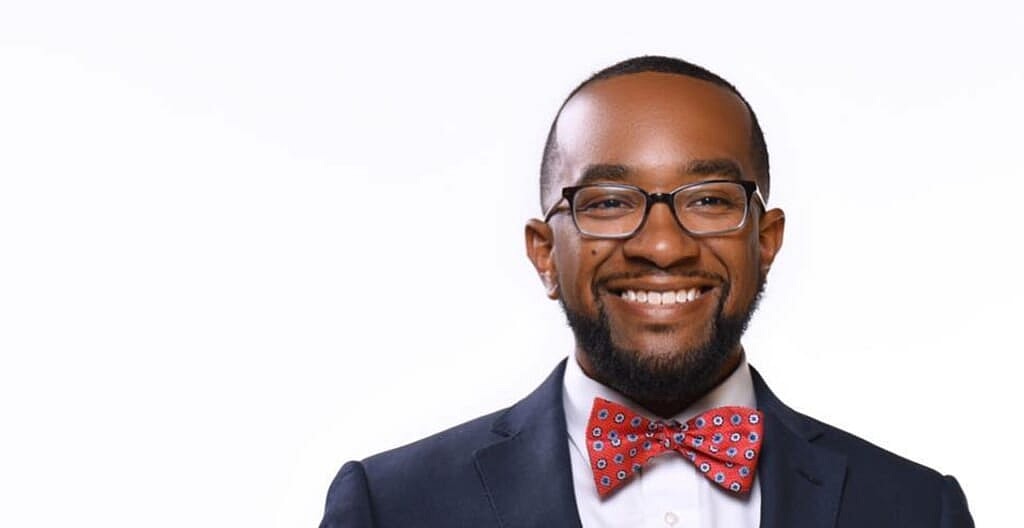A century has passed since the Tulsa Race Massacre destroyed the vibrant and prosperous Black Wall Street, but it’s still seared in the public consciousness. Tulsa: The Fire and the Forgotten is just one of the many documentaries that will delve further into the horrific event.
Tulsa: The Fire and the Forgotten is a 90-minute documentary that explores the racial violence that ravaged the Greenwood district known as Black Wall Street on May 31, 1921. An unruly white mob of 2,000 descended into Black Wall Street and burned down the neighborhood to ashes and claimed 100-300 Black lives.

Read More: Russell Westbrook ‘Tulsa Burning’ documentary takes in depth look at race massacre
Emmy-winning journalist Michel Martin narrates the doc which The Washington Post’s DeNeen L. Brown helped to produce. It will feature community leaders, historians, archeologists, Tulsa Mayor G.T. Bynum, and descendants sharing their thoughts on the seminal event. There’s also footage of excavations of the mass graves that victims were dumped in following the brutality against their community.
It’s a production of Saybrook Productions Ltd. in association with The WNET Group and directed by Jonathan Silvers.
“Stories have power and if they’re told, they can change the future and they can provide some healing. So my goal here would be to finally find answers for some of the descendants of the victims, and if they do find bodies, put those souls to rest,” Brown said in a press release. “This spring, the City of Tulsa plans to commemorate the 100th anniversary of the massacre, as descendants of survivors demand reparations for what was lost and protest against current oppression and racism.”
“The Tulsa Race Massacre is an atrocity that is often overlooked in our history,” said Lesley Norman, executive producer for The WNET Group in a statement. “With this documentary, we hope to examine the true history of race relations in America while paying respect to the lives lost and celebrating those fighting towards a better future for Black Tulsa residents and for African Americans across the country.”

theGrio exclusively spoke with Greg Robinson II, an activist and descendant of Tulsa Race Massacre survivors. He is featured in Tulsa: The Fire and the Forgotten and relayed how his family settled into the area in the early 1900s.
“We’re able to experience really the greatness and the safety and security that was Greenwood and unfortunately then had to experience the devastation of having their homeland, their schools, their churches destroyed. But we, like many others, stayed in the area, recovered and rebuilt, and have been here ever since. And I don’t think we plan on going anywhere.”
Robinson noted the irony of the Black community often being told to rise above their circumstances but were sabotaged doing just that because of the massacre. It is a pattern of behavior he did not believe has yielded over the generations.
“There’s this tendency to talk about bootstraps and a tendency to leave out the fact that America likes to take your shoestrings or your bootstraps. And then when you figure out how to work around that, they take your boots,” Robinson says.
Read More: 3 books on the Tulsa Race Massacre you should pay attention to 100 years after the attack
“And certainly, that is the reality of the people of Greenwood. You’re talking about a people who built what they built coming out of slavery,” he says. He further adds, “and then did it during a time, in a state that was run by Jim Crow laws.”

Robinson believes that the Tulsa Race Massacre has kept a hold on the public throughout the years because “the story of Greenwood and then the story of the massacre are they are microcosms for the Black experience in America.”
He maintains that justice has eluded Black Americans and Tulsa is a prominent slight. It is only recently that an investigation has been opened into the massacre—99 years after the fact.
“Until Black people, whether it’s enduring oppressive educational systems or oppressive criminal justice systems, justice is never just for us in this country. So, I think that’s why the story of Tulsa resonates, because if we can get Tulsa right, then it gives us a blueprint for doing right by Black Americans across this country.”
Robinson acknowledges the various commissions that have been established to study the Tulsa Race Massacre and there is a search to unearth unmarked graves of victims. However, it’s not enough when urban renewal is rampant and reparations are needed if healing is to be full.
“The reality is that beyond that there’s been no insurance payments paid out. There’s been no one brought to justice and there’s been no entities held accountable. And so truly, it’s not enough just to say all of this happened because in Tulsa and in the state of Oklahoma, we’re saying, oh, yeah, it happened, but it’s none of our fault because it’s none of our fault,” he says.
Robinson underscores the need for accountability and declares, “So I just want to be very clear that in order for us to truly move forward, we have to repair the harm.”
Tulsa: The Fire and the Forgotten premieres Monday, May 31 at 9 p.m. on PBS. Watch the trailer below.
Have you subscribed to theGrio’s podcast “Dear Culture”? Download our newest episodes now!
TheGrio is now on Apple TV, Amazon Fire, and Roku. Download theGrio today!

